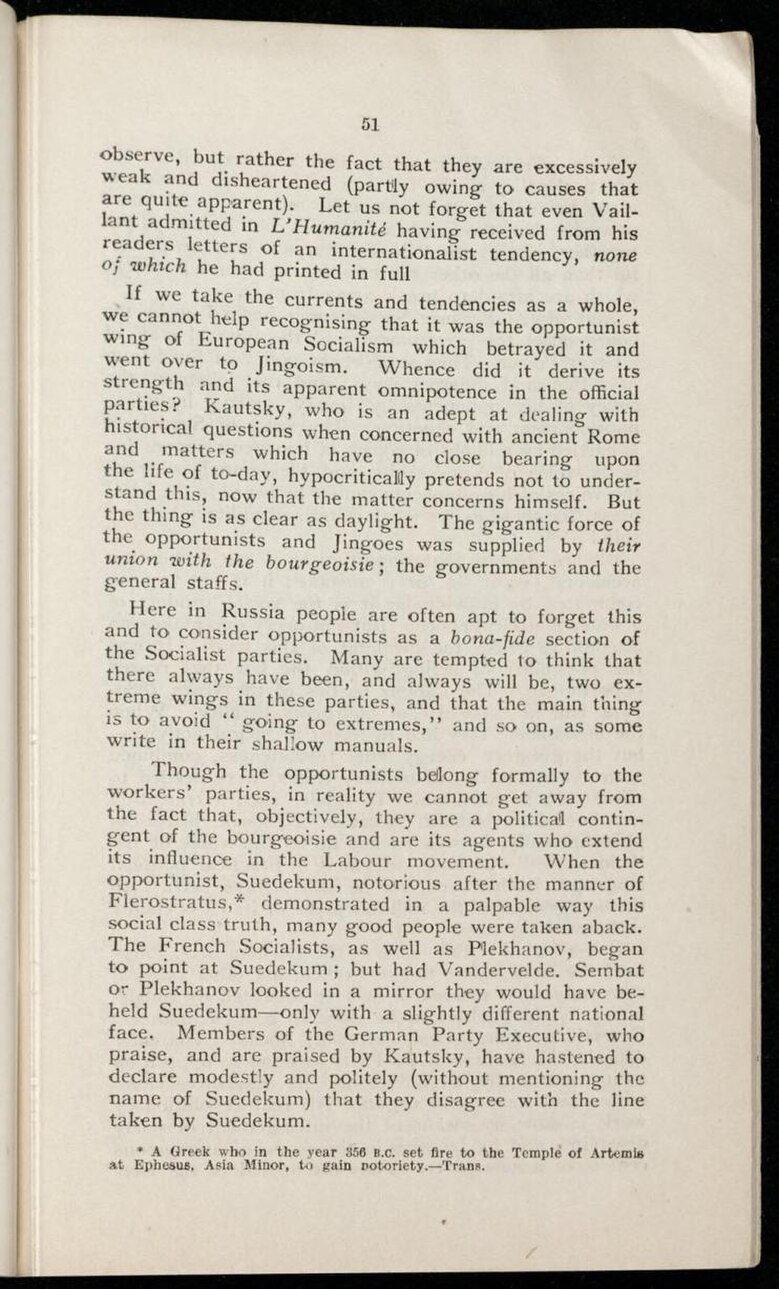51
observe, but rather the fact that they are excessively weak and disheartened (partly owing to causes that are quite apparent). Let us not forget that even Vaillant admitted in L'Humanité having received from his readers letters of an internationalist tendency, none of which he had printed in full.
If we take the currents and tendencies as a whole, we cannot help recognising that it was the opportunist wing of European Socialism which betrayed it and went over to Jingoism. Whence did it derive its strength and its apparent omnipotence in the official parties? Kautsky, who is an adept at dealing with historical questions when concerned with ancient Rome and matters which have no close bearing upon the life of to-day, hypocritically pretends not to understand this, now that the matter concerns himself. But the thing is as clear as daylight. The gigantic force of the opportunists and Jingoes was supplied by their union with the bourgeoisie; the governments and the general staffs.
Here in Russia people are often apt to forget this and to consider opportunists as a bona-fide section of the Socialist parties. Many are tempted to think that there always have been, and always will be, two extreme wings in these parties, and that the main thing is to avoid "going to extremes," and so on, as some write in their shallow manuals.
Though the opportunists belong formally to the workers' parties, in reality we cannot get away from the fact that, objectively, they are a political contingent of the bourgeoisie and are its agents who extend its influence in the Labour movement. When the opportunist, Suedekum, notorious after the manner of Flerostratus,[1] demonstrated in a palpable way this social class truth, many good people were taken aback. The French Socialists, as well as Plekhanov, began to point at Suedekum; but had Vandervelde, Sembat or Plekhanov looked in a mirror they would have beheld Suedekum—only with a slightly different national face. Members of the German Party Executive, who praise, and are praised by Kautsky, have hastened to declare modestly and politely (without mentioning the name of Suedekum) that they disagree with the line taken by Suedekum.
- ↑ A Greek who in the year 356 B.C. set fire to the Temple of Artemis at Ephesus, Asia Minor, to gain notoriety.—Trans.
